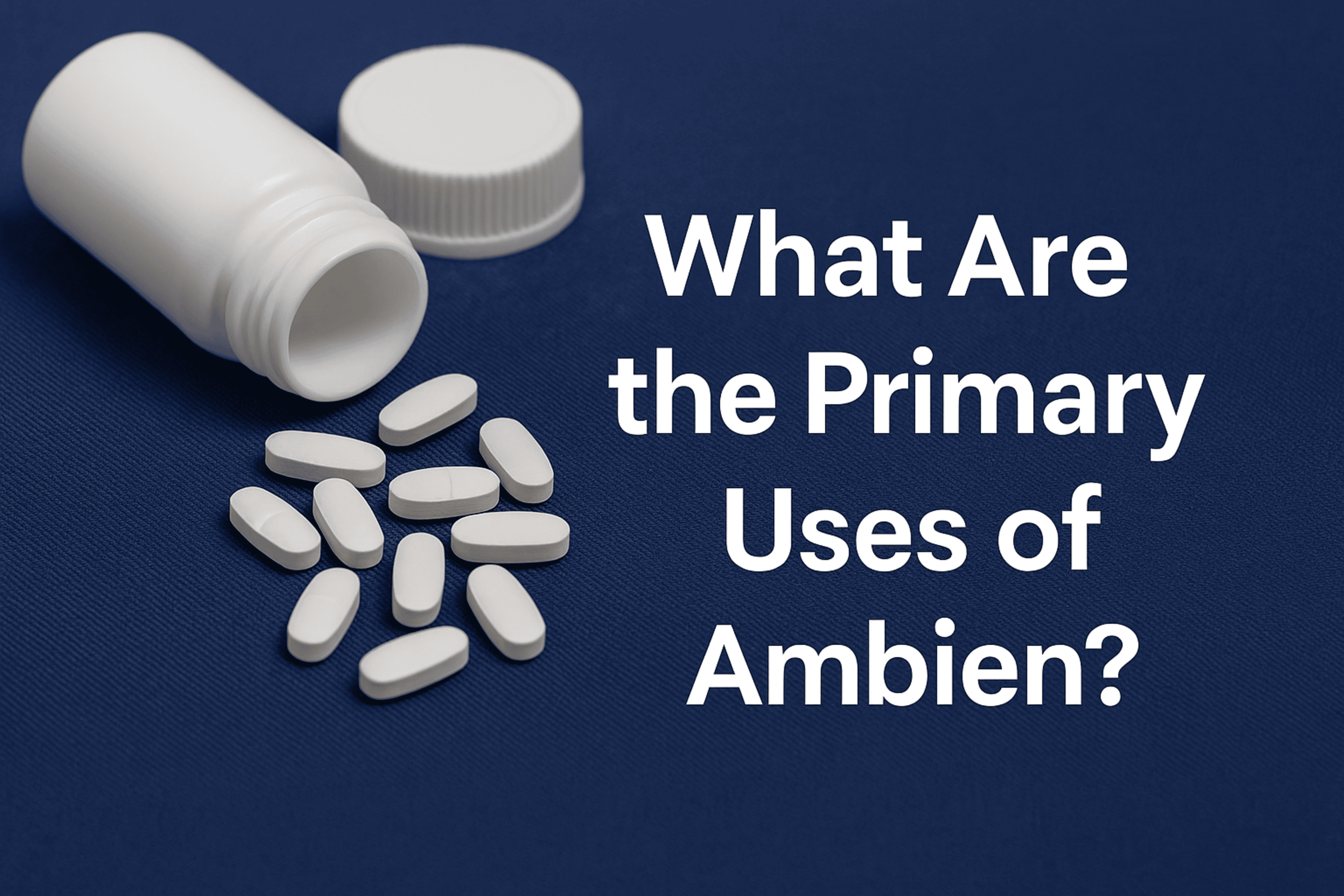Sleep is essential for our mental and physical well-being. But for millions struggling with insomnia, a good night’s rest feels just out of reach. That’s where Ambien comes in — a commonly prescribed medication designed to help you fall asleep faster and stay asleep longer.
But what exactly is Ambien used for? Let’s break it down.
🧠 What Is Ambien?
Ambien (generic name: zolpidem) is a prescription sedative-hypnotic medication. It works by slowing brain activity to help users relax and fall asleep. It’s FDA-approved and widely used to treat sleep disorders, particularly insomnia.
🔹 Primary Uses of Ambien
1. Short-Term Treatment of Insomnia
The most common and FDA-approved use of Ambien is for short-term management of insomnia — specifically, difficulty falling asleep.
- It’s designed to work quickly (within 15–30 minutes).
- Best taken right before bed on an empty stomach.
- Users should be able to get 7–8 hours of sleep to avoid morning drowsiness.
2. Sleep-Onset Insomnia
Ambien is particularly effective for sleep-onset insomnia — when you struggle to fall asleep but stay asleep once you do.
💡 For those who have both trouble falling and staying asleep, doctors may prescribe extended-release Ambien CR.
3. Occasional Use During Stress or Travel
Doctors sometimes prescribe Ambien for situational insomnia, like:
- Jet lag,
- Temporary stress,
- Changing work schedules (like shift work),
- Occasional sleepless nights due to anxiety or lifestyle disruptions.
🚫 What Ambien Is Not Meant For
- Not recommended for long-term nightly use
- Not intended for treating chronic sleep disorders without a full medical evaluation
- Not a cure for anxiety, depression, or pain (though these can affect sleep)
⚠️ Key Warnings & Precautions
While Ambien can be very helpful, it should be used with caution:
- Dependency Risk – Prolonged use can lead to tolerance and dependence.
- Complex Sleep Behaviors – In rare cases, users may sleepwalk, eat, or even drive with no memory of the event.
- Next-Day Drowsiness – Especially if not given enough time to sleep.
- Interactions – Avoid alcohol and other CNS depressants while on Ambien.
🕒 How Long Should You Use Ambien?
Most doctors prescribe Ambien for 7 to 10 days to break the cycle of sleeplessness. If sleep problems persist, a deeper evaluation is needed to uncover underlying causes (like anxiety, depression, or sleep apnea).
🩺 Final Thoughts
Ambien is a helpful tool in the short-term treatment of insomnia — especially when sleeplessness starts interfering with your life, work, or mental health. But like all medications, it’s best used under the guidance of a healthcare provider and as part of a broader strategy for healthy sleep.
If you’re struggling with chronic insomnia, consider combining medical support with:
- Better sleep hygiene
- Cognitive behavioral therapy for insomnia (CBT-I)
- Stress management techniques
💬 Have you tried Ambien or struggled with insomnia? Share your experience or sleep tips in the comments below!


